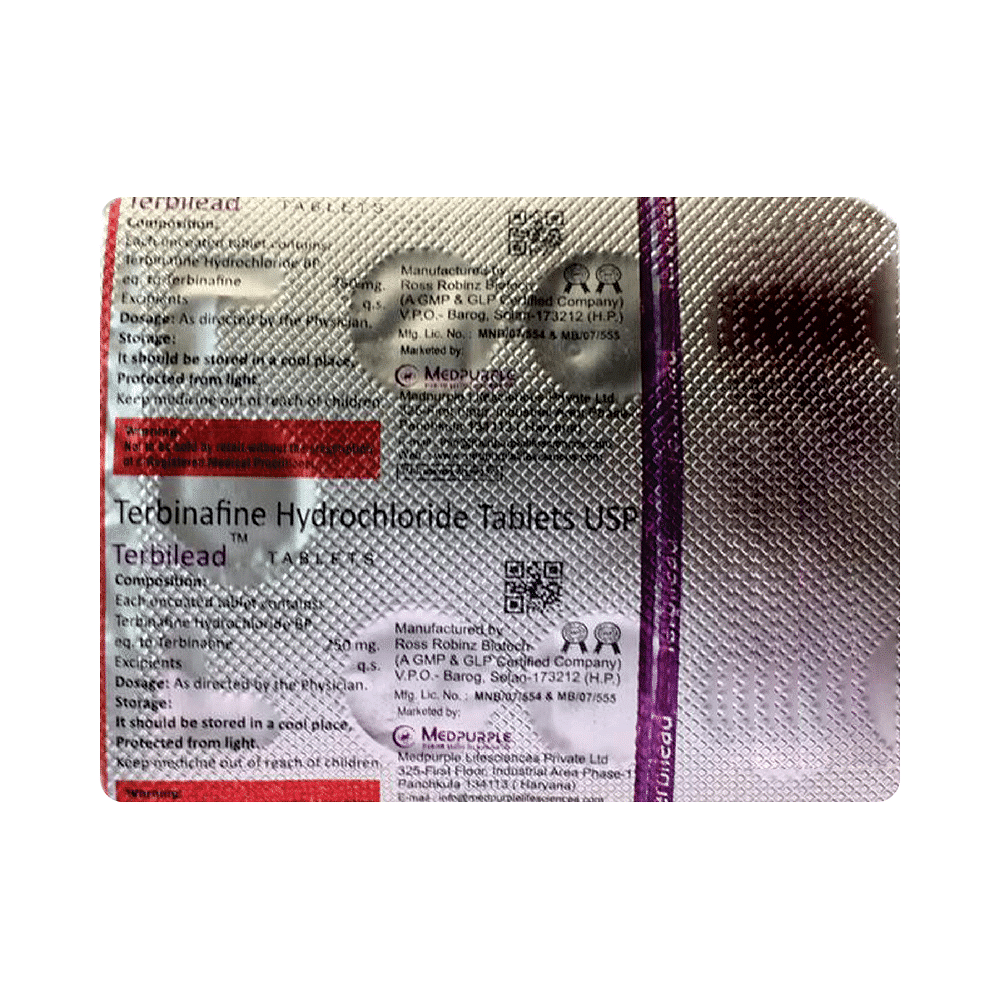
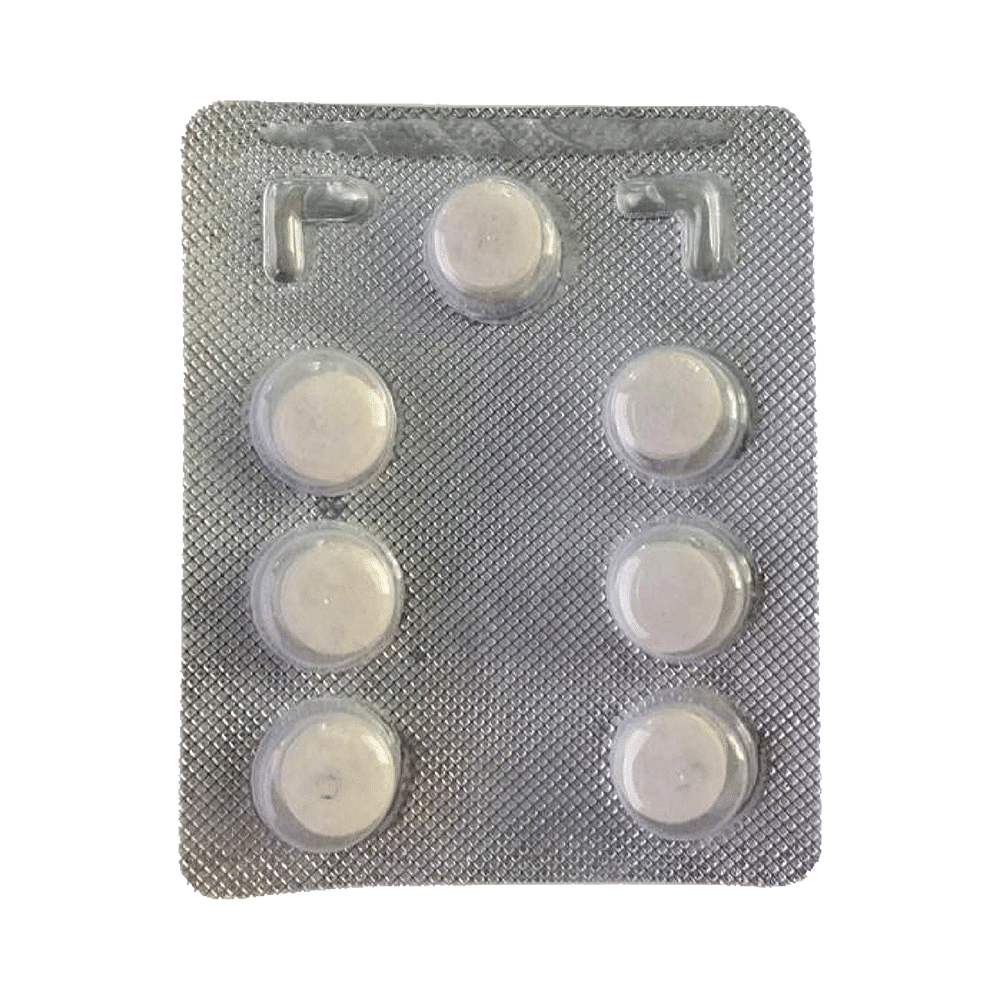
Terbilead Tablet
Manufacturer
Medpurple Lifesciences Pvt Ltd
Salt Composition
Terbinafine (250mg)
Key Information
Short Description
Terbilead Tablet is an antifungal medication used to treat a wide range of fungal infections of the skin and nails, including ringworm.
Dosage Form
Tablet
Introduction
Terbilead Tablet belongs to a group of medicines called antifungals. It is used to treat a wide range of fungal infections of the skin and nails, including ringworm. It works by killing the fungi that cause the infection.
Directions for Use
Take this medicine in the dose and duration as advised by your doctor. Swallow it as a whole. Do not chew, crush or break it. Terbilead Tablet may be taken with or without food, but it is better to take it at a fixed time. Avoid Terbilead Tablet with caffeine and chocolate as well as food containing caffeine and chocolate such as tea leaves, cocoa beans.
How it works
Terbilead Tablet is an antifungal medication. It kills and stops the growth of the fungi by destroying its cell membrane, thereby treating your skin infection.
Quick Tips
Do not skip any doses and finish the full course of treatment even if you feel better. Treatment may be needed for 2 to 6 weeks for skin infections and 6 weeks to 6 months for nail infections. Your doctor may monitor your liver function regularly during treatment. Inform your doctor if you notice yellowing of eyes or skin, dark urine, or stomach pain. Inform your doctor if you are pregnant, planning to conceive or breastfeeding.
Related Medicines
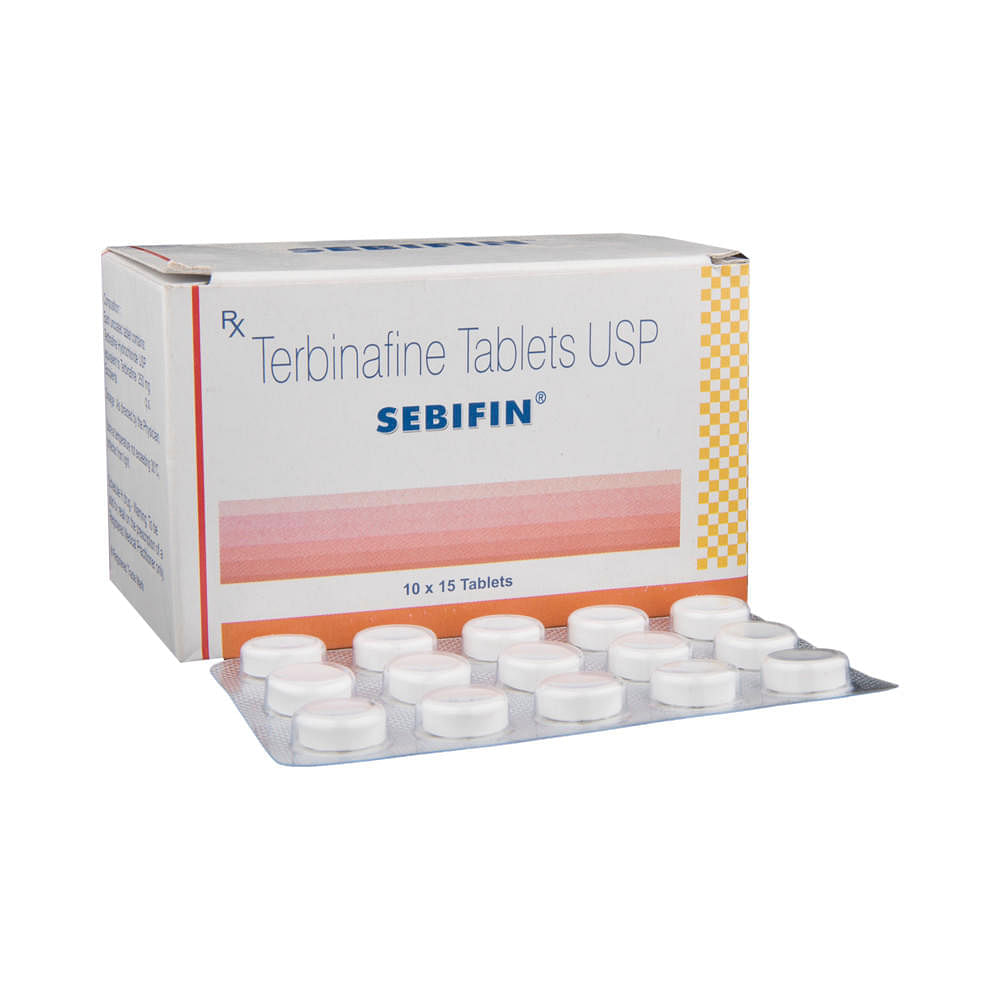
Sebifin Tablet
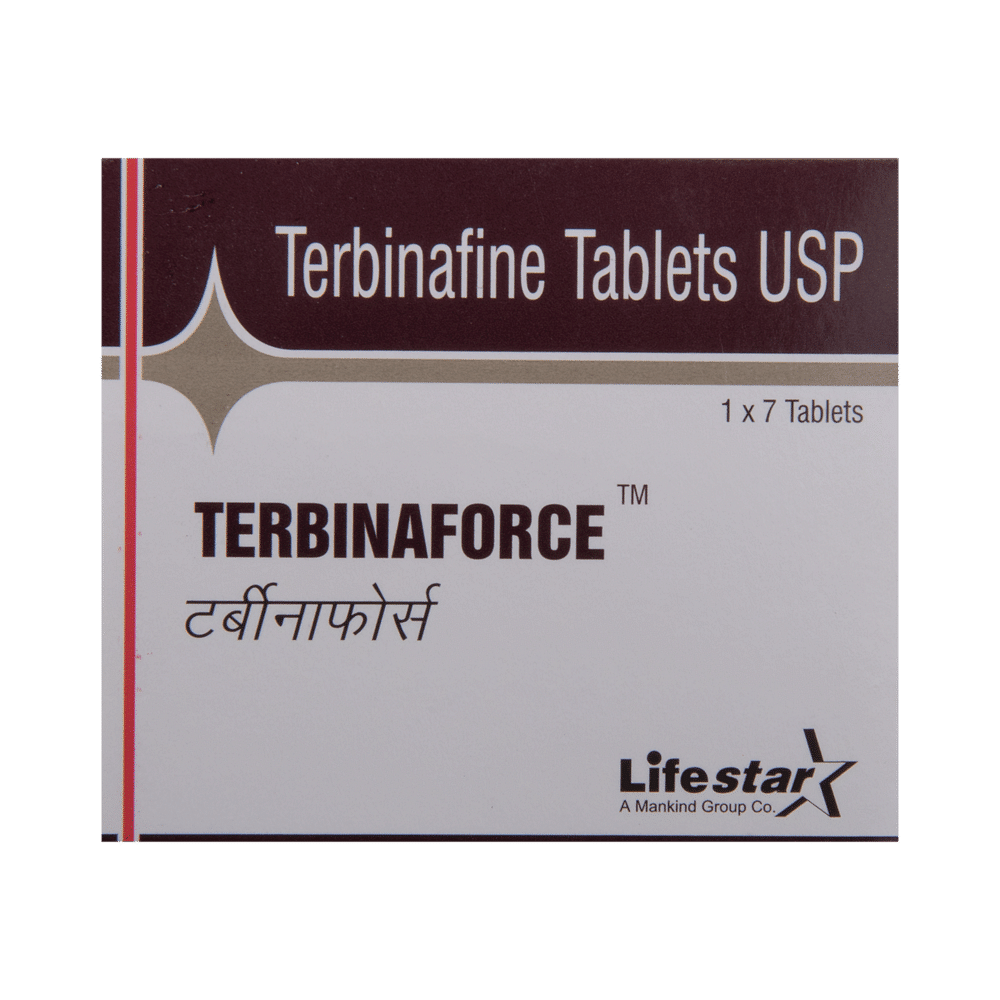
Terbinaforce Tablet
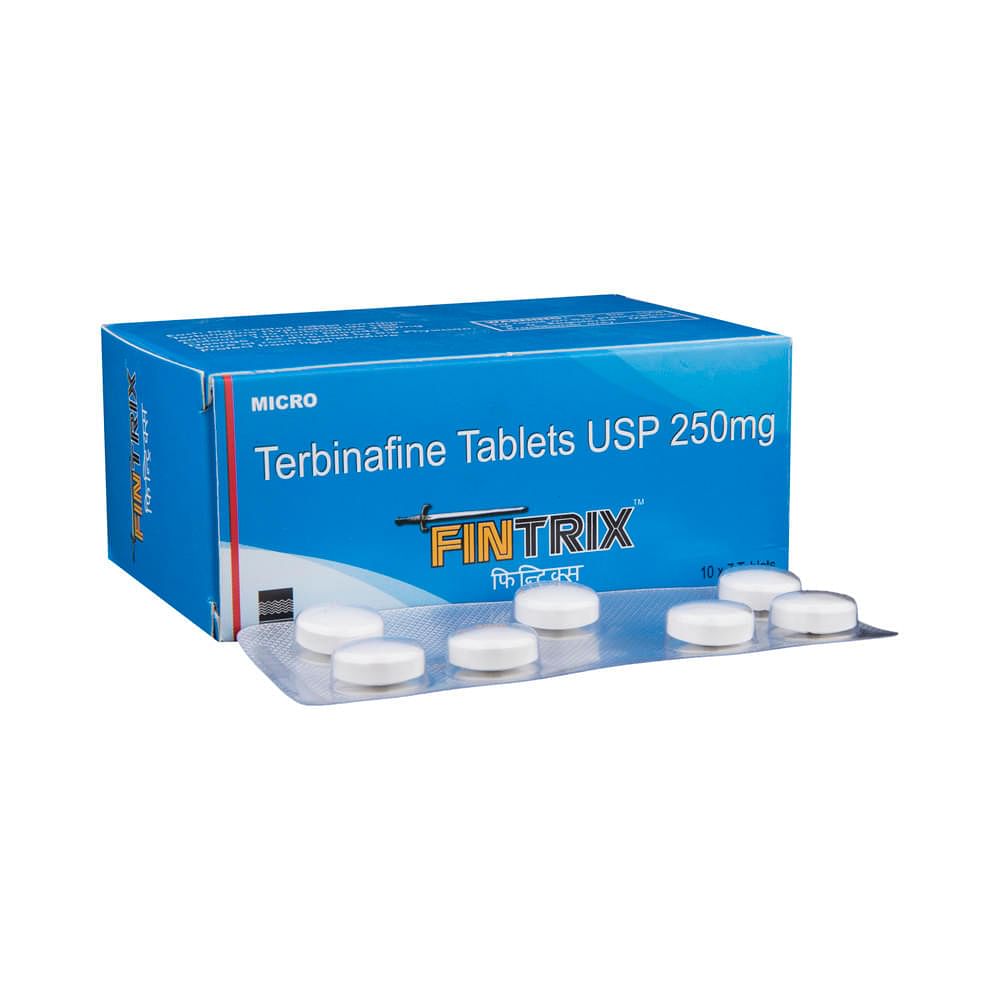
Fintrix Tablet
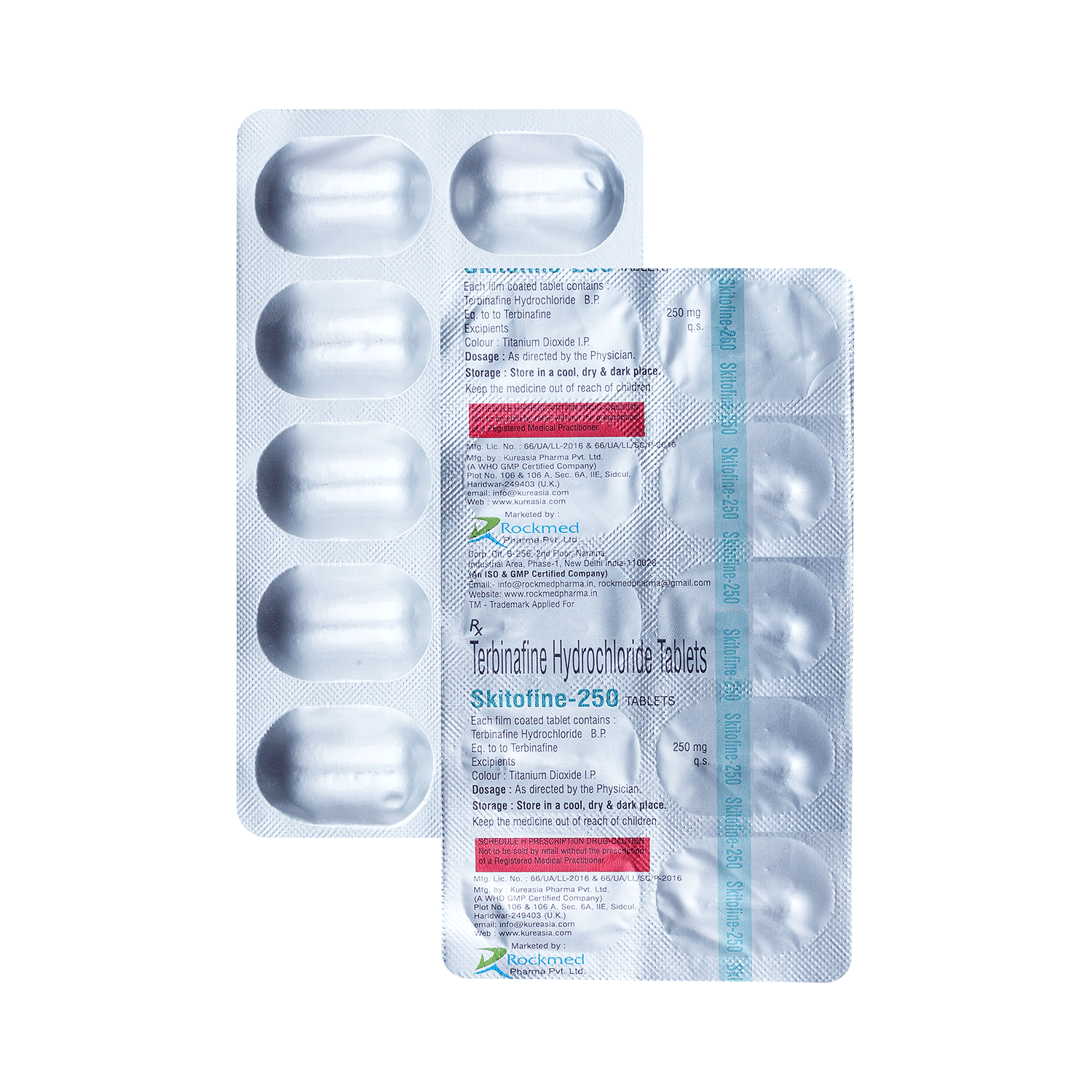
Skitofine 250 mg Tablet
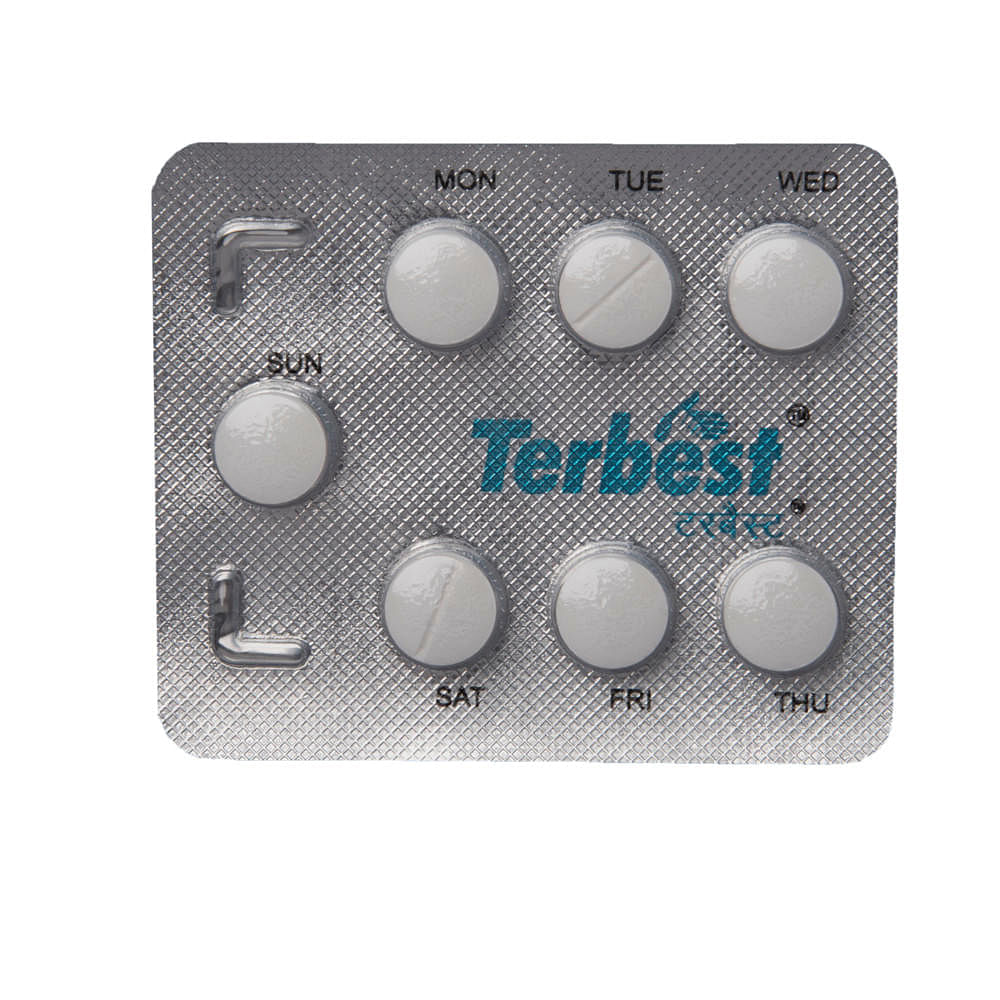
Terbest Tablet

Terbicip 250 Tablet

Terbitor 250mg Tablet

Sinofin 250mg Tablet

Banterb 250mg Tablet

Terbion 250mg Tablet
Frequently asked questions
Can Terbilead Tablet be safe for use in patients with liver cirrhosis?
Oral intake of Terbilead Tablet is not recommended in patients with chronic or active liver disease. A liver function test may be ordered to assess liver function before treatment. This is because the medication is metabolized by liver enzymes, and impaired liver function could lead to elevated drug levels and increased side effects or toxicity. Therefore, informing your doctor about pre-existing liver diseases and any medications you are taking is crucial. Your doctor may suggest periodic monitoring (after 4-6 weeks of treatment) of liver function tests and adjust the dosage accordingly.
Does Terbilead Tablet cause any skin reactions?
Yes, some individuals may experience skin reactions while using Terbilead Tablet. Cases of severe skin reactions, such as Stevens-Johnson syndrome and toxic epidermal necrolysis, have been reported. It is important to consult your physician before taking this medication. In case you develop any skin reaction or rash, discontinue the medication immediately and report it to your doctor.
Is Terbilead Tablet effective?
Terbilead Tablet has proven effectiveness as an antifungal medication when used at the prescribed dosage and duration by your doctor. Do not stop treatment prematurely, even if you observe improvement in your condition. Early discontinuation may allow the fungus to grow back, potentially worsening the infection.
How long do I need to take Terbilead Tablet?
The typical treatment duration for Tinea pedis (foot fungal infection), Tinea corporis (ringworm), and Tinea cruris (groin fungal infection) is about 2-4 weeks. The duration may extend up to 6 weeks in some cases, depending on the severity and site of infection. For nail infections, treatment usually lasts from 6-12 weeks. For fingernail infections, it might take 6 weeks, while toenail fungal infections can require 12 weeks. However, your doctor will determine the exact duration based on the specific type of infection, location, and patient response.
Can I drink tea or coffee while taking Terbilead Tablet?
Caffeine-containing beverages like tea and coffee should be consumed with caution while undergoing treatment with Terbilead Tablet. Terbilead Tablet reduces the rate of caffeine metabolism by 19%, leading to elevated caffeine levels in the blood. This increase can result in side effects such as jitteriness, headache, increased heart rate, and restlessness.


